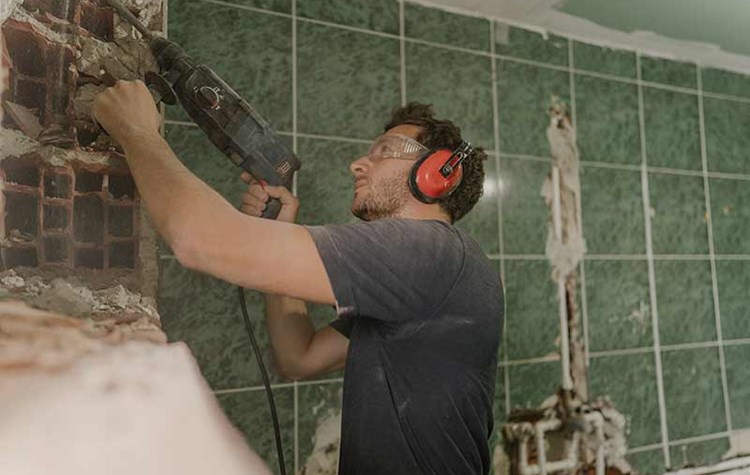Published on 02 March 2024
Your ears are responsible for your hearing and sense of balance. If the tiny fibres in your ear are damaged, it can lead to hearing loss, balance issues, cognitive problems and delayed speech processing. Read our article to learn how you can take care of your ears.
What is safe listening?
Safe listening is a term which refers to specific listening behaviours that don’t put your hearing at risk. For example, how long are you listening for, what is the volume of the sound, how many times are you subject to loud noises (perhaps you work on a building site and hear loud machinery a lot). If you are subject to louder sounds for long periods of time, you’ve got a greater risk of hearing loss.
In 2021, WHO (World Health Organisation) launched the World report on hearing. The report highlighted the increasing number of people that live with, and are at risk of, hearing loss.
- It is estimated that by 2050 nearly two and a half billion people could have some degree of hearing loss
- Over one billion young adults are currently at risk of permanent, avoidable hearing loss due to unsafe listening practices
Noise control was identified as one of the seven key hearing interventions. It also stressed the importance of reducing exposure to loud sounds.
Ways to prevent hearing loss
Aging can cause hearing loss but a reduction in hearing due to loud noise exposure can be avoided.
1. Avoid loud noises
This may seem obvious but avoiding loud noises does prevent hearing loss. How do you know if a noise is loud enough to damage your hearing? A noise is loud enough to damage your hearing if you must raise your voice to talk to others, it hurts your ears, you can’t hear what people close to you are saying or after exposure to the noise you have ringing in your ears or muffled hearing.
2. Take care when listening to music
Do not listen to music at more than 60% of the maximum volume because listening to loud music through earphones and/or headphones is one of the biggest threats to your hearing. Using noise-cancelling earphone or headphones also prevents you from turning up the volume to block out background noise. If you listen to music for more than an hour at a time, make sure to take a break for at least five minutes every hour.
3. Protect your hearing during loud events and activities
If you go to a nightclub or concert, it’s important to move away from the source of the loud noise, like speakers. While at the event, try wearing earplugs that reduce the volume but don’t muffle the sounds. After exposure to lots of loud noise, give your ears about 18 hours to recover.
4. Take precautions at work
Sometimes exposure to loud noise is unavoidable, especially if you’re exposed to loud noises through your work. However, your employer is obliged to make changes to reduce your exposure to loud noise by providing hearing protection such as earmuffs or earplugs. You could also request they switch to quieter equipment.
5. Get your hearing tested
Having your hearing checked once a year is a good idea if you’re at a higher risk of hearing loss due to loud noise exposure.
Our ear, nose and throat ethos
- Prompt and accurate diagnosis of all aspects of ENT conditions by sub-specialist experts in their field
- ‘One stop’ ethos of diagnosis and instigation of a treatment plan
- Bespoke treatment plan directed at the cause of your problems once identified
- Wide range of day case surgical solutions to your problems should medical solutions not be effective
- Early return to work and to normal activities
We see a range of patients who suffer from common conditions such as ear or sinus infection, breathing or hearing difficulties and impaired balance. Our expert Ear, Nose and Throat (ENT) Consultants provide a wide range of treatments to help you feel better again.
To find out more, or to book an appointment, complete our online form or contact our Private Patient team via Livechat or on 01580 363158.






